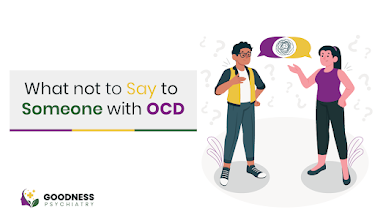Long-Term Side Effects of Ketamine Treatment: What You Need to Know
Ketamine therapy has emerged as a promising treatment for various mental health conditions, including depression, anxiety, and ADHD. As the demand for alternative treatments grows, more individuals are seeking options like "ketamine treatment near me" in areas like Texas. However, while ketamine infusions offer rapid relief for many patients, it’s important to understand the long-term side effects that may accompany this treatment.
If you're searching for a "psychiatrist
near me" or an "ADHD clinic near me," it’s crucial to be aware
of both the immediate and long-term consequences of ketamine therapy before
making any decisions. In this blog, we will delve into the long-term side
effects of ketamine treatment and what patients can expect when undergoing this
type of therapy.
Understanding Ketamine Treatment
Ketamine has long been used as an anesthetic,
but in recent years, it has gained popularity as a treatment for depression and
other mental health conditions. When administered in controlled, low doses,
ketamine can have profound effects on mood and cognition. Ketamine infusions
are often administered at clinics offering specialized treatment for depression
and other disorders.
Long-Term Side Effects of Ketamine
Treatment
While ketamine therapy can provide quick relief
from depression, anxiety, and other conditions, there are several potential long-term
side effects of ketamine treatment that patients should be aware of.
1. Cognitive Impairment
One of the most concerning long-term effects of ketamine for depression
is the potential for cognitive impairment. Some individuals report experiencing
difficulties with memory, attention, and concentration after repeated ketamine
treatments. This may persist for some time following treatment, especially with
long-term ketamine use.
2. Bladder Issues
Chronic use of ketamine, especially at high doses, has been linked to urinary
tract problems, including bladder pain, urgency, and incontinence. This
condition, sometimes referred to as "ketamine bladder syndrome," may
occur after prolonged use of ketamine infusions.
3. Mental Health Concerns
Although ketamine therapy can be an effective treatment for depression and
anxiety, ketamine side effects long term could include the exacerbation
of mental health issues such as dissociation, hallucinations, or vivid dreams.
Patients may experience an altered sense of reality, which can be distressing
and difficult to manage without proper monitoring.
4. Addiction and Dependency
Ketamine, when used recreationally or in high doses, has the potential to be
habit-forming. This risk is particularly concerning for individuals undergoing long-term
ketamine treatment for conditions like depression. Those who use ketamine
regularly might develop a tolerance to the drug, requiring higher doses to
achieve the same effect.
5. Nausea and Gastrointestinal Issues
How long does nausea last after ketamine treatment? Nausea is one of the
most common short-term side effects of ketamine therapy, but for some
individuals, it may persist as a long-term issue. Additionally, some patients
may experience gastrointestinal discomfort such as indigestion or upset stomach.
6. Potential for Increased Risk of Psychosis
In rare cases, long-term ketamine therapy may trigger symptoms of psychosis in
susceptible individuals. This includes feelings of paranoia, confusion, and
disorganized thinking, which can interfere with day-to-day functioning.
How Long Do Ketamine Infusion Side
Effects Last?
The duration of ketamine infusion long-term
side effects varies from person to person, depending on factors like the
dosage, frequency of treatments, and individual health. Most individuals will
experience immediate side effects such as nausea and dizziness, which typically
resolve within hours. However, the long-term effects of ketamine infusions
may persist for days, weeks, or even longer, depending on the individual’s
response to the treatment.
For those concerned about the long-term
effects of ketamine for depression, it’s important to discuss these risks
with your provider. A psychiatrist
near me can help assess whether ketamine is the right treatment for you
and monitor any potential side effects throughout your treatment journey.
Managing Long-Term Ketamine Side
Effects
If you are undergoing low-dose ketamine
therapy or have already started ketamine infusions, there are ways to
minimize potential long-term side effects.
1. Regular Monitoring
Work closely with your healthcare provider to track your progress and any side
effects. Regular assessments can help catch any emerging issues before they
become more severe.
2. Adhering to Recommended Dosing Schedules
Avoiding excessive use of ketamine and following your provider’s dosing
recommendations can reduce the likelihood of developing severe side effects.
3. Psychiatric Support
Continuous mental health support, including therapy and counseling, can help
mitigate the risk of developing negative psychological side effects. Some
clinics offer a comprehensive approach that combines ketamine therapy and
psychotherapy for optimal outcomes.
4. Bladder Health Monitoring
If you are undergoing ketamine infusions, make sure to monitor your urinary
health. Consult your doctor if you experience any pain or discomfort while
urinating.
Conclusion
As with any medical treatment, long-term
side effects of ketamine treatment should not be overlooked. It’s important
to weigh the potential benefits of ketamine therapy for conditions like
depression against the risks of long-term consequences. By working closely with
a psychiatrist near me or a specialized ADHD clinic near me, you
can better understand whether ketamine is the right treatment for your specific
needs and how to mitigate any possible risks associated with its use.
If you're considering ketamine treatment near me
in TX, don’t hesitate to ask about the long-term effects of ketamine
treatment and what steps are being taken to ensure your safety and
well-being throughout the process. Your health and peace of mind are the top
priority, and informed decisions are the best way to ensure positive outcomes.
.jpg)

Comments
Post a Comment